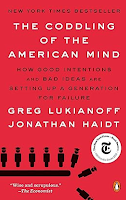I recently read The Return of the Prodigal Son: A Story of Homecoming by Henri Nouwen (1994).
HN was a Harvard professor and priest who, in later life, chose to serve in an institutional setting for mentally handicapped folks.
In this book, HN teaches us the lessons of Jesus’ parable of the Prodigal Son through the lens of Rembrandt’s famous depiction of same.
My top takeaways:
Ø Rembrandt’s painting of the Prodigal Son embodies far more than meets the eye.
Ø Allowing ourselves to be loved is more difficult than teaching about love.
Ø The monumental challenge: Seeing others and the world as God does.
Ø BOTH sons in the parable needed, and received, healing, forgiveness, acceptance, love…unconditionally.
Ø As was the older son in Jesus’ parable, it is quite possible to be “lost” while still “at home.”
Ø To truly surrender to God’s love, I must let go of comparisons, rivalries, jealousy.
Ø God does NOT compare us to one another, ever.
Ø Cynicism and Joy may, in fact, be opposites; we choose one or the other each moment.
Ø Regardless of whether we identify as the younger son or older (or both), we are called to move into the spiritual maturity of the father.
Ø Jesus’ parables of the lost sheep, the lost coin, and the prodigal son all point to an all-forgiving God, perpetually in search of “the lost.”
Ø To become more like God, we must embrace fully Grief, Forgiveness, and Generosity.
Ø Our ultimate choice: to accept or not accept God’s all-forgiving love.
My favorite quotes:
“I am constantly surprised at how I keep taking the gifts God has given me—my health, my intellectual and emotional gifts—and keep using them to impress people, receive affirmation and praise, and compete for rewards, instead of developing them for the glory of God.” (p. 43)
“What I do know with unwavering certainty is the heart of the father. It is a heart of limitless mercy.” (p. 75)
“There is an Estonian proverb that says: “Who does not thank for little will not thank for much.” (p. 86)
“I now see that the hands that forgive, console, heal, and offer a festive meal must become my own.” (p. 119)
“The great conversion called for by Jesus is to move from belonging to the world to belonging to God.” (p. 125)
“As I look at my own aging hands, I know that they have been given to me to stretch out toward all who suffer, to rest upon the shoulders of all who come, and to offer the blessing that emerges from the immensity of God’s love.” (p. 139)
This book is one of the most compelling of my reads in the last 20 years. It was reflective, analytical, invitational, convicting, insightful. It calls me to be a better version of myself, one that more closely mirrors the God of my understanding.




